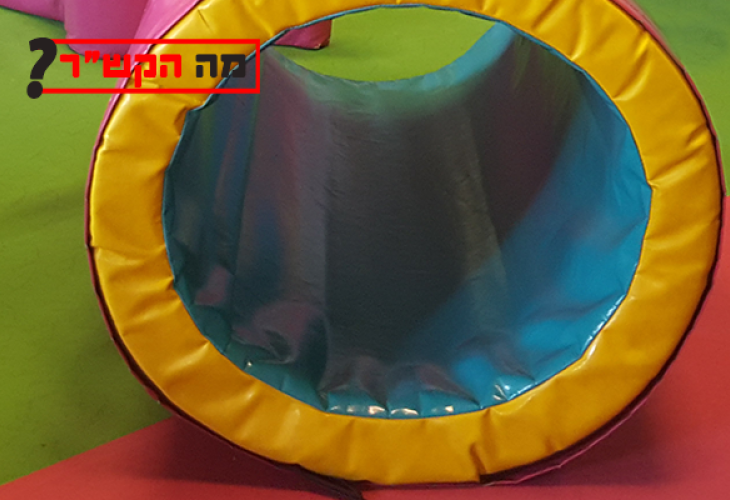Exploring Occupational Therapy: A Path to Managing ADHD
It was only later that I realized executive function difficulties are among the most prominent features of ADHD. They really go hand in hand.
 Image of an indoor playground tunnel
Image of an indoor playground tunnelPrevious Episode: Welcome to the World of Bureaucracy
This was actually the first time anyone mentioned the concept of ADHD to me. I was familiar with the topic from the time of diagnosing my eldest son, so I knew it was a possibility. Now I had an official confirmation.
For an ADHD diagnosis, you need to consult a pediatric neurologist, a child psychiatrist, or a pediatrician with a special focus on ADHD. I requested and received a recommendation from our regular pediatrician for a good diagnostician. He gave me the name of a neurologist and a pediatrician specializing in ADHD. The neurologist's appointment was in six months, so I preferred to wait about a month and a half for the pediatrician. Of course, forms were needed for him as well... but you're already familiar with that stage.
Meanwhile, I arrived at the child development center for evaluation in the area of occupational therapy.
At that time, I didn’t know much about ADHD or any other learning or developmental difficulties. Occupational therapy, for me, was something related to motor skills, based on my limited knowledge. So, I was even a bit annoyed at the referral for this evaluation. Although she falls often, despite the glasses adjustment we recently made, Michali has excellent motor skills. So what's the connection?
In fact, occupational therapy is a much broader field, and the motor skills aspect is just a small part of the subjects it encompasses. A simple check in Wikipedia provides this quote: "Occupational therapy helps people with dysfunction due to physical, mental, cognitive, or communicative impairments to live independently in family and society as much as possible. The profession draws its knowledge from occupational science, medical science, and social & behavioral sciences."
When Michali and I arrived for the evaluation, we were welcomed by a young, cheerful occupational therapist who immediately gained my trust. She asked me to fill out a questionnaire – yes, another form – which included various daily functions. Where does she excel, and where less so? I mentioned Michali's frequent falls, among other things.
Between Organization and Management
While I was filling it out, she talked with Michali, giving her various written exercises, and then practiced running through the center's corridors, walking a straight line, climbing, and more. Surprisingly, Michali didn't fall even once. However, she did have difficulty climbing into a giant gymboree tube.
This is the reason why we go for professional evaluations conducted by those who studied the field: neither the falls nor the climbing difficulty were due to any motor issue. While I remained puzzled by what I saw, the therapist clearly understood the situation.
"Michali has difficulty with executive functions," she told me. This is commonly known as "organization difficulties." These are the kids who are all over the place — nothing is in its rightful place, they can’t remember where they put their scissors or shoes, and they forget to come home on time because something else caught their attention.
The therapist explained that everything related to planning and executing a plan is difficult for Michali. Preparing for one activity or another is quite a complex process for her: What tools do you need to use for the job? What do you need to prepare? How long will it take? What's the best way to start? And if you’ve started – how do you proceed? These are questions that an average child doesn’t even notice they’re asking because they arrive at a solution almost instantly. Michali, on the other hand, gets "stuck" at each of these stages. She couldn't climb the tube because she had never done it before, and since it was a bit more challenging than just walking or jumping, she struggled to figure out what to do first: lift a leg? Hug the tube? Jump? After the therapist directed her to the most efficient way to climb, she climbed brilliantly, doing it repeatedly with great enjoyment.
The therapist recommended occupational therapy treatment for us, which will help her learn to manage, stay organized, and succeed more in her studies.
And what about the falls? She had a clear answer, or rather, a question: "Have you done an ADHD evaluation yet?"
I told her we were waiting for the doctor’s appointment, and she was pleased. "When Michali ran here, she didn’t fall. She was focused on her goal. When she runs at home or outside, there are distractions. She focuses on other things – and that’s probably why she doesn’t notice when she bumps into objects or trips." It sounded strange and logical to me at the same time.
It was only later that I realized difficulties with executive functions are among the most prominent features of ADHD. They really go hand in hand.
So now we were on double standby: on the waiting list for occupational therapy treatment and eagerly anticipating the ADHD doctor's appointment.
And that appointment was finally approaching.
Do you have ADHD at home? Feel free to comment.

